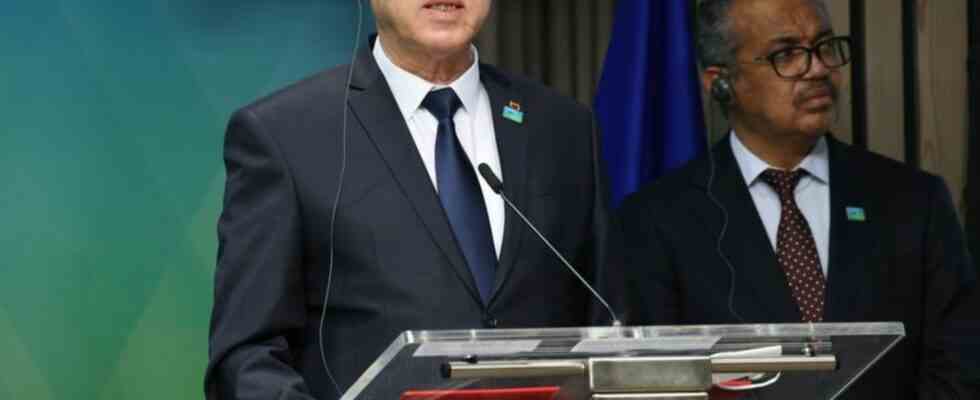power struggle
Tunisia’s president announces dissolution of parliament
Saied speaks of a “coup attempt”, observers fear a social split in Tunisia. Photo: Dario Pignatelli/European Council/dpa
© dpa-infocom GmbH
Tunisian President Kais Saied speaks of a “coup attempt” by the MPs, he himself was accused of a coup last year. How divided is Tunisian society?
In the power struggle that has been smoldering in Tunisia for months, President Kais Saied has ordered the dissolution of parliament. He was reacting to a meeting of MPs on Wednesday evening, whose work the head of state had already suspended last year.
Saied described the meeting at a National Security Council session as a “failed coup attempt” and a “conspiracy against state security”. He went on to say: “Today, at this historic moment, I announce the dissolution of Parliament to protect the state and its institutions.”
Last July, Saied deposed then Prime Minister Hichem Mechichi and froze the work of Parliament. He also lifted the immunity of all MPs. Despite international protests, he later extended the measures. His opponents condemned his actions as a coup d’état. The former law professor, on the other hand, referred to the country’s constitution. Most recently, he also pushed ahead with the restructuring of the judicial system.
Members of Parliament met on Wednesday for the first time since the suspension for a virtual session. They decided to lift Saied’s measures announced in July of last year. The largest faction in the North African country’s parliament is the Islamist Ennahda party.
So far, Saied has enjoyed great popular support for his actions, but recently resistance has grown. Ten days ago, thousands of opponents took to the streets. Observers fear that a social split will jeopardize Tunisia’s stability.
The Arab uprisings had begun in the North African country, as a result of which several long-term Arab rulers were overthrown in 2011. Tunisia was the only country in the region to make the transition to democracy. However, it continues to struggle with an economic crisis, high unemployment and widespread corruption. The resentment is particularly great among the younger generation.

